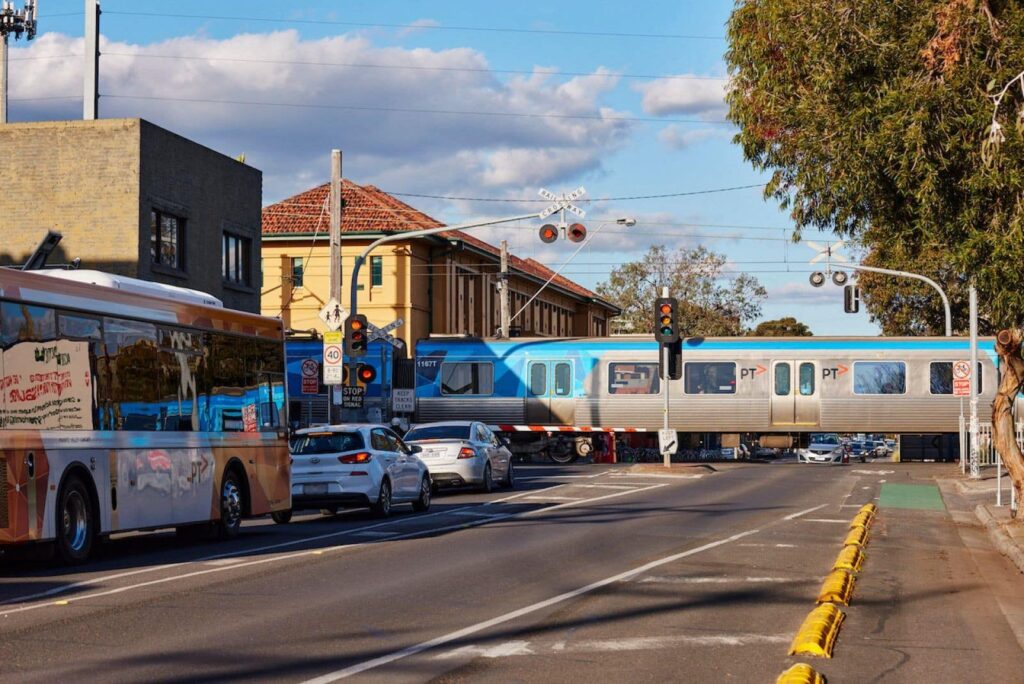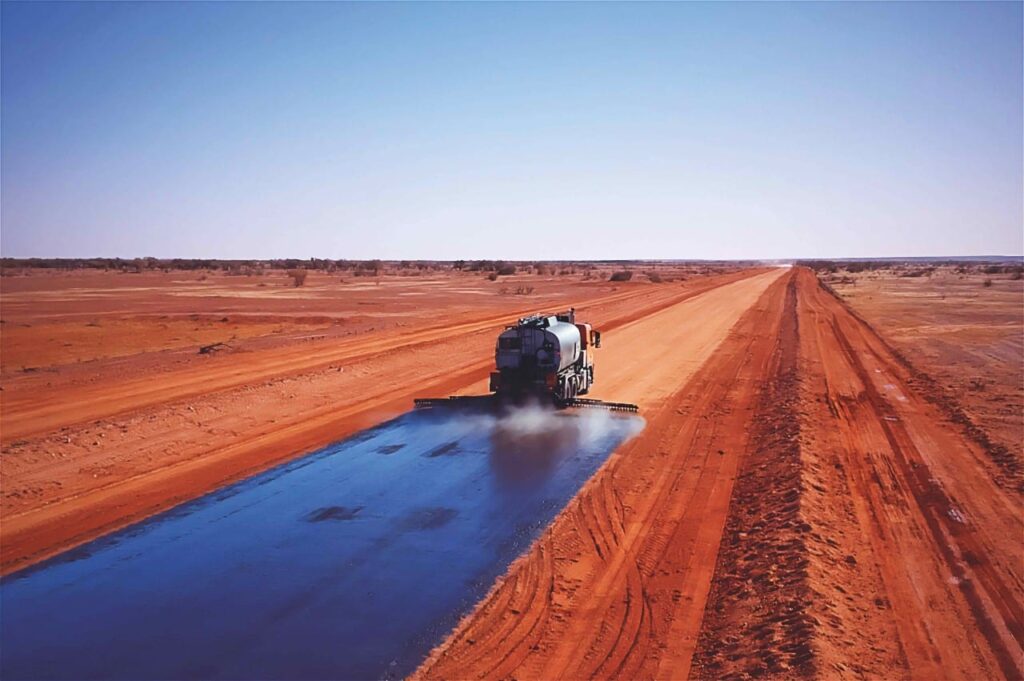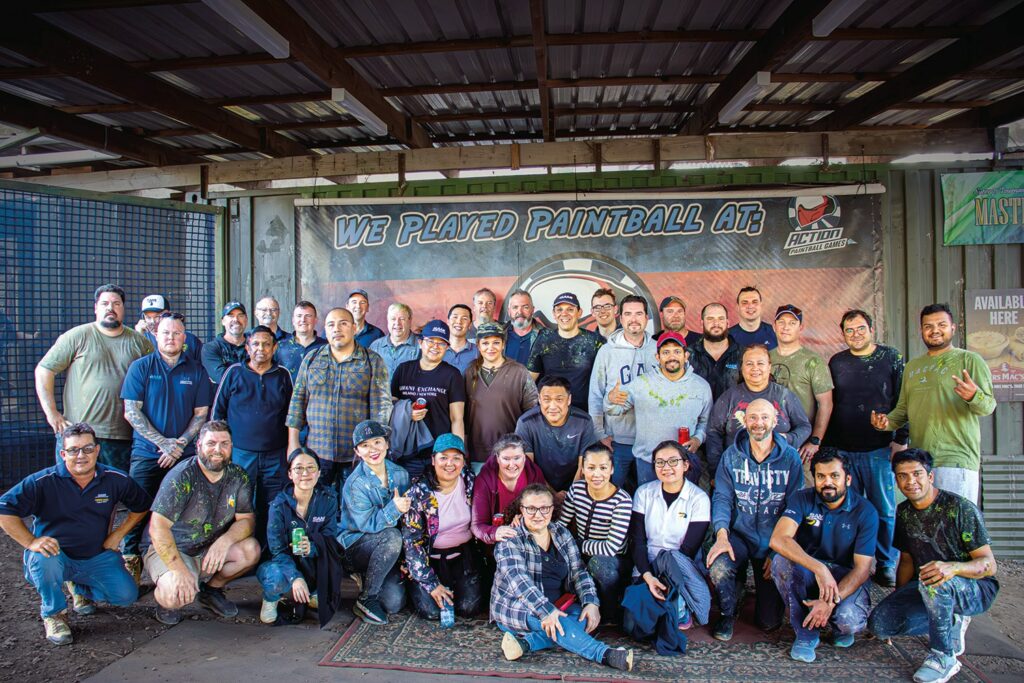Flex for Good: SAMI Bitumen Technologies and Colas Australia
This post was originally published on this site
Roads & Infrastructure speaks with products experts from SAMI Bitumen Technologies and Colas Australia to learn more about the company’s innovative SAMIfalt Crumbflex binder.
Ever since the beginnings of the company in 1978, SAMI Bitumen Technologies has always had an interest in manufacturing and developing sustainable products for the roads and infrastructure sectors.
Back in 2021, development began on SAMI Bitumen Technologies SAMIfalt Crumbflex binder, the company’s offering for a more sustainable binder to replace imported polymers with local rubber from end-of-life tyres for road and pavement construction.
The company’s National R&D and Laboratory Manager, Kanjana Yindee, says the company’s goal is to provide more sustainable binders which comply with existing industry specification requirements.
“As part of our approach to sustainability, we created a product that would comply with existing specifications, making the transition easier for our customers when it comes to procurement,” Yindee says.

“The main objective was to increase our use of crumb rubber to align with SAMI’s sustainability goals. A special design was required in order to meet existing specifications for hybrid crumb rubber and an SBS (styrene-butadiene-styrene) polymer modified binder.
“We aimed to design SAMIfalt Crumbflex to meet A15E and A10E specifications, while also maintaining its properties during hot storage and transportation.”
The SAMIfalt range consists of a variety of polymer modified binders that have been designed to improve the fatigue resistance and performance of asphalt mixes.
Meeting a range of Austroads and State Road Authority specifications, SAMIfalt Asphalt Grade Binders have been used in a variety of projects including surfacing works at Sydney Airport, the Pacific Highway and the M2 and M5 Freeways in New South Wales.
Related stories
Developing day and night
Following initial development and planning in 2021, SAMI Bitumen Technologies’ research and development team began developing Crumbflex at the SAMI laboratory in Camellia, New South Wales.
This facility acts as the primary location for the company’s research and development efforts nation-wide.
As Yindee recalls, the facility helped to streamline development, by allowing complementary testing in real-time.
“The lab is a fully integrated R&D facility with both binder and asphalt testing being completed side-by-side,” Yindee says. “This allowed us to rapidly test changes to the product and further assist in development.
“The production trial was undertaken at the Camellia production plant, but the process was designed to ensure that the product could be made in any SAMI facility.”
Benefits for bitumen
SAMIfalt Crumbflex helps to increase the recycling content of asphalt mixes. This is achieved by using repurposed crumbed rubber from end-of-life truck tyres and a warm mix additive, which helps reduce production and placement temperatures, which in turn lowers fume exposure and energy costs.
SAMIfalt Crumbflex also provides improved performance at higher or lower temperatures, while at the same time meeting the typical A15E specification parameters specified in New South Wales. As Stephen Bernard, SAMI’s R&D Chemist, explains.
“It enables our customers to use a product which contains recycled crumb rubber without having to change specifications,” he says. “This helps to save costly discussions around changing binders and having road agencies change specifications, making the product easier for customers to use.
“Having a recycled material in the Crumbflex can also enable our asphalt customers to offer a more sustainable asphalt products to win more tenders.”
SAMIfalt Crumbflex can also be used in conjunction with SAMIbond 007, a trackless tack coat emulsion, as well as our crumb rubber modified spray seal binders that satisfy S25E specifications.
On trial
These benefits were recently put to the test as part of a demonstration project at Port Stephens, NSW.
The trial aimed to determine if SAMIfalt Crumbflex could perform equally or better than a standard A15E binder asphalt wearing course.
Luke Murphy, Mobile Project and Technical Manager for Colas NSW, says the trials also aimed to evaluate and compare the asphalt mix performance properties of the polymer modified binder against the crumb rubber hybrid binder.
“It’s a step towards producing more sustainable asphalt products by increasing the re-use of crumbed rubber from end-of-life truck tyres,” Murphy says. “It’s been demonstrated through laboratory testing to result in improved fatigue and wheel tracking performance in comparison to a typical A15E asphalt.
“Colas NSW intends to replace all standard A15E binders with the SAMIfalt Crumbflex.”

Lee Whitehead, State Manager – Colas NSW says that beyond encouraging performance tests, the SAMIfalt Crumbflex has also received the seal of approval from customers.
“Our customers are happy that the pavement looks homogenous, was produced at lower temperatures and still resulted in the expected level of quality,” Whitehead says. “It’s pleasing to provide working environments for people with a lower exposure to harmful fumes.”
He adds that the participation of all stakeholders in the industry is essential to develop more sustainable solutions.
“Delivering new Innovations such as SAMIfalt Crumbflex to our communities are made possible by the councils, state road authorities and various industry stakeholders who are willing to collaborate and trial new technologies with the flexible pavements industry.”
Bernard echoes Whitehead’s sentiment, saying that future use of sustainable products relies on ongoing development and research to provide longer lasting pavements.
“We are proud to think that in the future, thousands of kilometres of roads could be paved with SAMIfalt Crumbflex, while considering all the non-renewable resources that it could save across the entire country. It’s part of our commitment towards improving the sustainability across all SAMI’s binder products,” Yindee says.
“We are currently developing biocomponent binders and low carbon bitumen emulsion. We want to play a part in the asphalt industry to help Australia achieve our goal of net zero carbon pavements.”
This article was originally published in the April edition of our magazine. To read the magazine, click here.





Responses